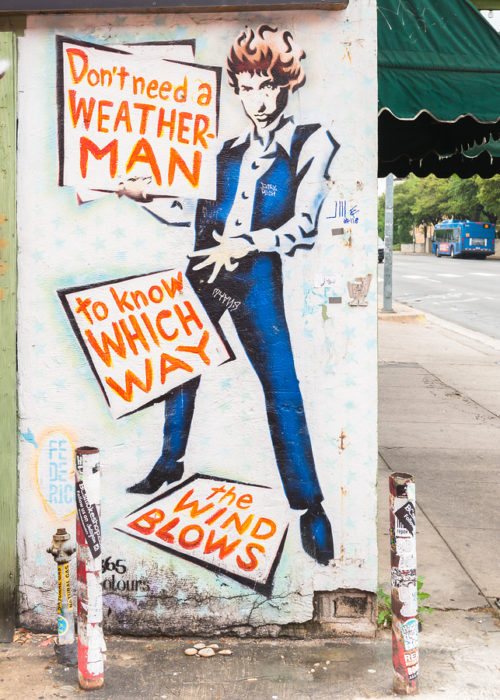I normally steer away from controversial topics in this blog but the announcement that Bob Dylan, the popular musician, was awarded the Nobel Prize for Literature gave me pause.
My first thought was “What?” To place Dylan alongside previous Nobel laureates like Solzhenitsyn, Steinbeck, Kipling, Hemingway, Camus, Faulkner, T.S. Eliot, and Churchill? I wondered that if, upon hearing the announcement, every novelist in the world went into another room and cried a little.
I will admit my own ignorance, but for years the announcement of the new Laureate has been often accompanied by a “Who?” (take a look at this list of laureates) However, this time it created a vigorous discussion in the industry regarding art and the nature of literature. One that bears exploring.
There is no argument that the arts are comprised of many forms of artistic expression. Music, literature, painting, and dance are usually found under that umbrella.
But until now the Nobel prize has been the purview of novelists and poets. And never has their definition of poetic literature been expanded to include songwriting. (Whether you are a fan of Dylan’s music should not be part of this conversion. This is not a discussion of his music or singing, but of his writing.)
I wonder if it is possible to truly separate the music from the lyrics in a song. Of course you can, but should you? I began to think about the familiar lyrics of so many songs. I tried to speak them aloud without the music. It’s not easy. In fact many of us know the chorus of a song but not the verses.
The classic song “American Pie” by Don McLean was a huge hit in 1971. Can you quote the lyrics? Or what about “Bohemian Rhapsody” by Queen? Or any one of the “Top 100 Billboard Singles of All Time“? In nearly every case the music is inextricably tied to the lyrics in our minds.
Which begs the question of whether the lyrics would or should be considered literature. “Sugar. Ah honey, honey. You are my candy girl.” or “Ain’t nothin’ in the world like a big eyed girl to make me act so funny , make me spend my money.” or “Party rock is in the house tonight. Everybody just have a good time (yeah). And we gonna make you lose your mind (whoa!).”
The great hymns of the faith are laden with deep theological themes. I believe it is an important exercise to think about the words of those hymns while we are singing them. Notice in your hymnal at the bottom of every song are two listings. On one side is the name of the lyricist. On the other side is the name of the one who put the words to music. They are rarely the same person. The creation of the poem/lyric was later set to music to become a hymn.
Fanny Crosby wrote and published over 8,000 hymns in her lifetime. Charles Wesley composed 6,000 hymns. Many of their songs have endured the test of time and continue to thrill the soul. But I doubt that either will be a candidate for the Nobel Prize.
An argument could be made that many of the Psalms of the Bible were originally sung. I have the book, Psalms for All Seasons, in my library which has all 150 set to music. So are they lyrics or poetic literature? or both?
Therefore if we are to think about the words we are singing during the course of worship and thereby separate the words from the music, what about the words from a songwriter like Dylan? What about any song that we hum while working or absorb while on the treadmill or in the car? Do the words matter? Or are we more attracted by the sound rather than the lyrics?
The question remains whether Dylan’s work is worthy or should even be classified as “literature.” But the Nobel Prize committee decided that you can separate the lyrics from the music. Do you agree or disagree? I dare say the answer, my friends, is blowin’ in the wind.
You can find the lyrics to his 500+ songs here (Dylan lyrics link).


